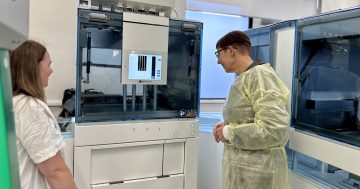 WA Health is sounding the alarm after cases of the sexually-transmissible infection (STI), syphilis reached a 10-year high in the State.
WA Health is sounding the alarm after cases of the sexually-transmissible infection (STI), syphilis reached a 10-year high in the State.
As a result, the Department is rolling out an urgent public health messaging campaign to focus on the disease which can cause brain and heart damage if not treated.
Healthysexual, the Department’s overarching sexual health campaign, urges people to talk about, test for, and treat STIs.
Manager of the Sexual Health and Blood-borne Virus Program at the Department, Lisa Bastian said that while syphilis peaked in 2021, it remained high in 2022.
“Unless diagnosed and treated, people can carry the infection for many years and spread it,” Ms Bastian said.
Even if you have no sores or other signs of syphilis, it can still be damaging your body.”
She said that syphilis, which can be easily treated with antibiotics, is particularly harmful to unborn babies.
Last year in WA, there were 842 notifications of infectious syphilis with 42 of them pregnant women.
The Department said that over the past 10 years in WA there had been 12 notifications of syphilis occurring in pregnant women with more than half of those in 2021. Three syphilis infections during pregnancy ended in stillbirth.
“We encourage pregnant women to get tested early and often through their pregnancy to keep themselves and their unborn children safe,” Ms Bastian said.
Gonorrhoea was the second most commonly notified STI in WA with notification and testing rates highest in the 15-to-24-year age group.
The gonorrhoea notification rate was higher in the Kimberley region than in other parts of the State and was 12-times higher among Aboriginal people compared to non-Aboriginal people.
With HIV, syphilis and gonorrhoea common overseas, the Healthysexual campaign also urges Western Australians to practise safe sex when abroad.











